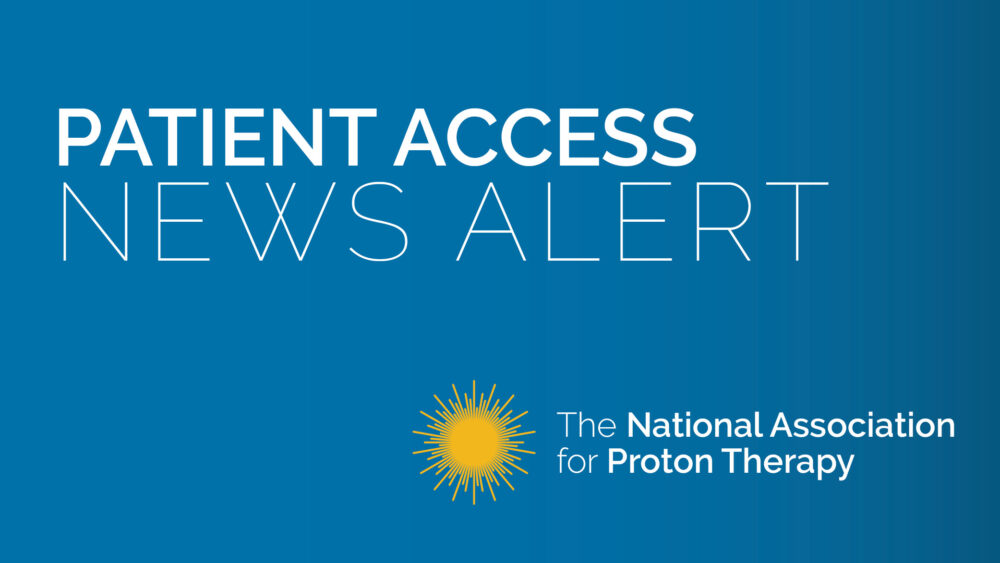Input from NAPT critical in the formulation of revised treatment and coverage guidelines, ongoing stakeholder dialogue required for more frequent updates
NAPT applauds revised guidelines for proton therapy approved by the American Society for Radiation Oncology (ASTRO), which recently updated its model policy to clarify and expand the types of conditions appropriate for treatment, and – with the inclusion of additional research – more accurately depict the effectiveness of proton therapy.
“This long-overdue update reflects a growing consensus among oncology professionals and medical researchers that proton therapy is effective, safe and appropriate care for an increasing number of cancer patients who may benefit from this life-saving, life-changing treatment,” said NAPT Executive Director Jennifer Maggiore. “Thanks to ongoing, open dialogue between ASTRO and NAPT regarding model process and methodology, the stage is also set for more frequent updates that will be necessary as new data emerges.”
ASTRO model policies are developed to inform and educate commercial and government payers on appropriate clinical indications for coverage. The model policy released in May 2023 expanded on the appropriate conditions and indications for proton therapy, clarified indications for therapy based on tumor site, and updated the ICD-10 code diagnosis list – a vital coverage determination tool used by the Centers for Medicare & Medicaid Services (CMS). The revised policy also added clinical references to support expanded indications for the use of proton therapy treatment.
Updated for the first time since 2017, ASTRO’s model policy was revised with input from the NAPT Physician Advisory Committee, the Particle Therapy Cooperative Group – North America (PTCOG-NA) and the Proton Collaboration Group. Proton therapy is a life-saving cancer therapy that delivers radiation directly to a tumor, sparing nearby healthy tissue. This pinpoint accuracy has been shown across multiple disease sites to improve overall survival –by reducing life-threating toxicities, being more effective at tumor eradication, or allowing more targeted doses of radiation.
“While ASTRO’s model policy for proton therapy is a step in the right direction, it is vital that future guidelines reflect the growing amount of research and evidence regarding the effectiveness of proton therapy,” said Maggiore. “We look forward to ongoing engagement with ASTRO and NAPT members to ensure that treatment and coverage guidelines for proton therapy continue to align with the needs of cancer patients and their families.”





